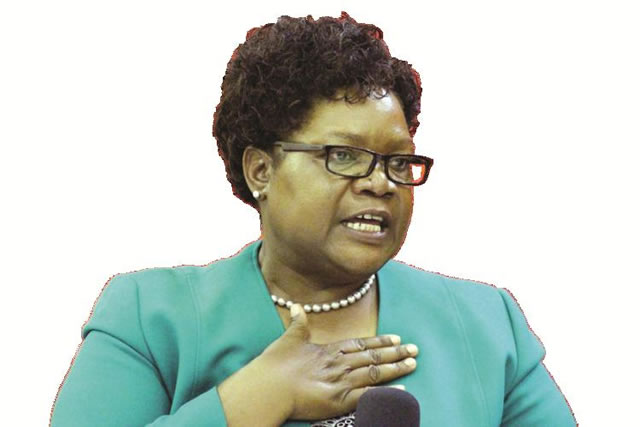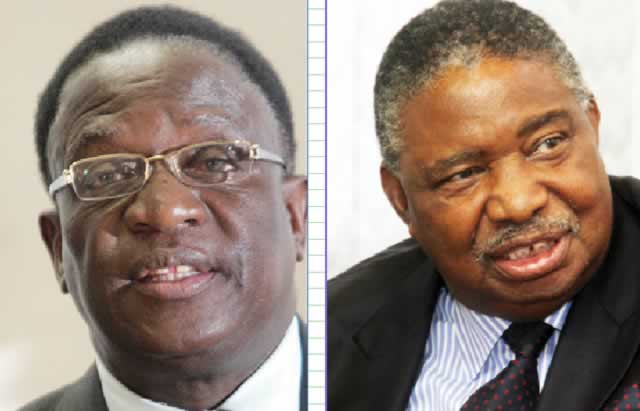The purge must now cascade

Perspective Stephen Mpofu
AS the New Year looms large on the horizon with behind it a 2014 ending at a scintillating peak with fallen big government heads littering the way, Zimbabweans appear set to start implementing what the late Iraqi president, Saddam Hussein would no doubt have described as “the mother of all developmental initiatives.”
But, of course, implementing the Zimbabwe Agenda for Sustainable Socio-Economic Transformation must of necessity go beyond mere rhetorical commitment to practicalities.
Anything about Zim-Asset that does not demand of Zimbabweans their soul and body will amount to nothing but a false start to that agenda with the result that poverty, some of it quite grinding in some ugly pockets, will remain a sad commentary on this nation’s attempt at self actualisation.
The government and revolutionary party heads that have rolled in recent weeks have been put down to a purge of incompetence. These were people accused of reneging on their assigned responsibilities as servants of the people, by indulging in corruption, factionalism and, worst of all, conniving with one another and in complicity with a foreign power to depose President Mugabe by all means including his assassination.
One might surmise that some government and party structures where the disgraced officials were employed were bloated to the extent that it became difficult to monitor every act by those accused persons who then resorted to evil machinations, convinced that Big Brother was not watching them.
Like an obese human being, the excess fat becomes dysfunctional, posing a health hazard to the person in question — witness the activities the dismissed leaders undertook, thereby posing a danger to both the party and its government.
In taking the drastic move that it did, the government says that it also wanted to put both itself and the ruling party in good stead to make Zim-Asset a reality.
But it is not only the central government that is charged with transforming the economy and with that the welfare of this nation: Municipalities and quasi-government institutions as well as the private sector all have important roles to play in the economic and social transformation of this country.
What this suggests, therefore, is that the purge visited upon leaders at the top should cascade down to municipalities as well as to parastatals where some structures are probably top-heavy with half hearted servants of the people where shoddy delivery of duty may be the order of the day with no strict supervision of personnel to talk of in some cases.
In fact there might be a need to streamline management in those bodies so that every position held is accountable for a service delivery for each day in order for the office holders concerned to earn a deserved keep.
The private sector, on the other hand, appears to ensure service delivery by all employers in order to keep a healthy profit margin for the company to stay afloat.
Savaged, though it has been by illegal Western sanctions, the Zimbabwean economy needs urgently to be revised and kept afloat and Zim-Asset appears to be a potential magic wand in this respect.
It has been strongly hinted that the government would in the New Year change indigenisation laws to render them foreign investor-friendly.
True, huge infusions of direct foreign capital as investment will provide a quick fix to the present situation where potential investors remain too close with their money, frightened by anti-Zimbabwe propaganda propelled by this country’s Western detractors angry at land reform and black empowerment measures by the government. In reforming the indigenisation laws however, the government should ensure that it does not give the foreign investors carte blanche rights to use foreign capital as a vampire to suck the blood of our country, thereby weakening our people’s control of our own resources.
The foreign investor and Zimbabweans should rendezvous on an even playing field: the investor putting his money on the table and Zimbabweans offering their resources for investment.
In such a situation there will be no winner takes all. On the contrary, it will be a win-win situation.
In this pen’s humble opinion, partnerships between foreign investors and Zimbabwean businesses offer an ideal quid pro quo situation, with both sides smiling all the way to the bank.
In these years of postmodern technologies, a Zimbabwean partner stands to benefit from a vertical transfer of technology from the foreign parent of a company with which it is in partnership.
On the other hand, the foreign company is guaranteed security of its investment. It is obviously for benefits accruing to companies in partnership that the Zimbabwean government is encouraging local companies to enter into partnerships with those that have the capital to invest in the country.
This obviously means that investment is not an act of charity, as what some developed nations would want developing countries to believe. It is, in fact, business with handsome dividends accruing to both partners.
But unfortunately for Zimbabwe, the country seems to be waging a campaign for survival even against its own people — a tragic irony needed.
For instance this pen has observed over a long period of time that Zimbabweans employed as correspondents for some Western media, in particular the Voice of America radio, appear to hunt with the hounds and run with the hares as it were.
These members of the noble profession, journalism — and this pen wonders if they regard themselves as noble at all — do not in their reportage often tell situations in Zimbabwe as they really are but appear to interpret events and situations in ways that reflect the political stand point of their employers.
Take for instance the dismissal of former Vice-President Joice Mujuru and the accusations levelled against her, in which the American embassy in Harare is implicated. All that the correspondents, each one of them in turn have been telling the American audiences amounts to Mujuru’s being vilified because, the correspondents say, she stood in a strong position to replace President Mugabe.
Not only that. These so-called correspondents do not defend the country against foreign interference, but instead their reports always appear skewed in favour of the foreign policies of America which are anti-Mugabe and anti Zanu-PF.
You listen to their interviews with the Zimbabwean leaders and you might be forgiven, if you don’t know them, for mistaking them for American journalists based in Zimbabwe.
This pen does not suggest that these correspondents white wash any decisions taken by the government in order for them to appear patriotic. Far from it. They must tell the truth without fear or favour in order for their audiences to be well informed about development in this country.








Comments